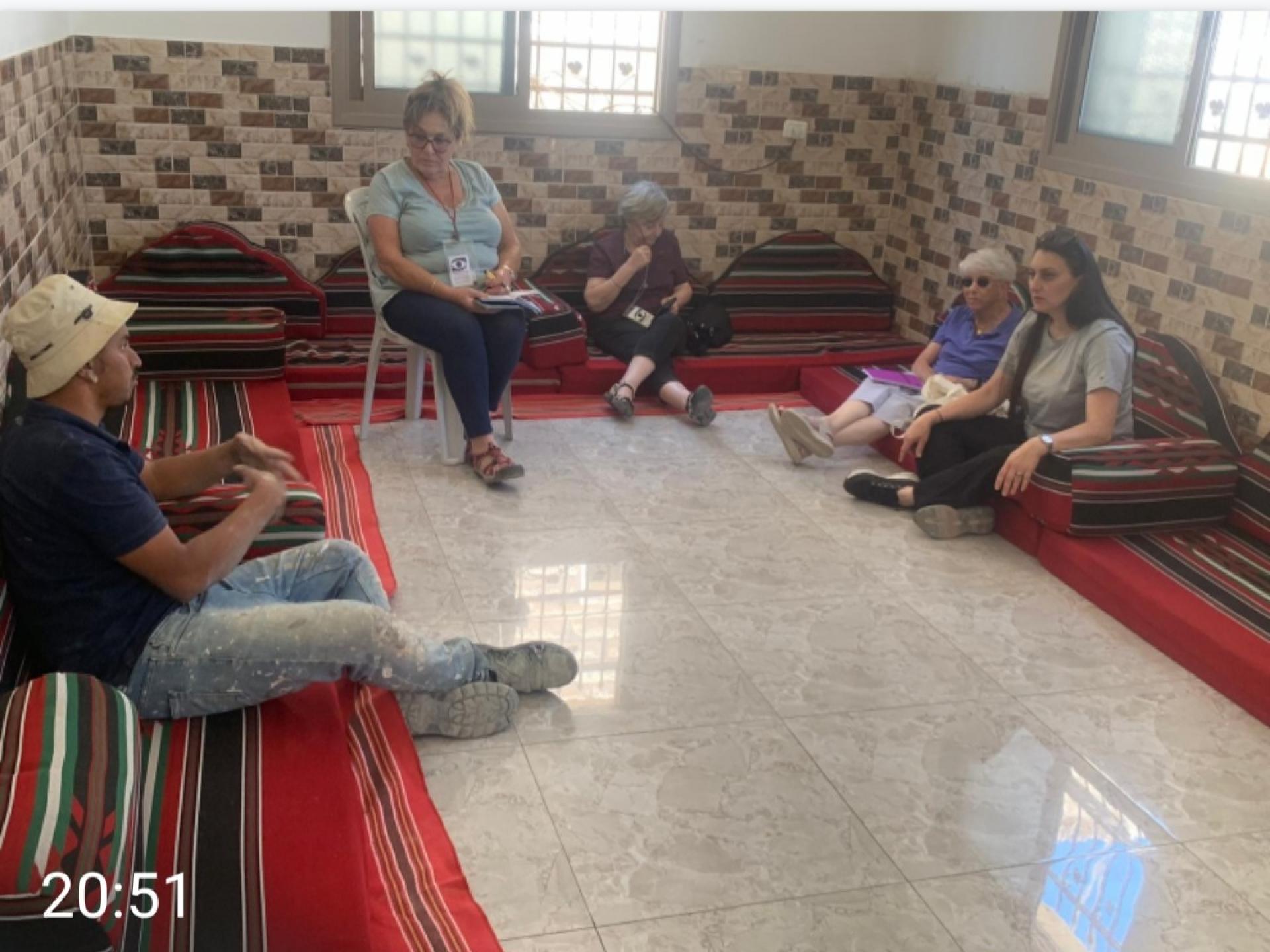South Hebron Hills - exploring possibilities of legal action with Yesh Din against settler violence
The shift was dedicated to meeting people who were victims of the settlers' aggression and according to the request of the members from "Yesh Din" who would like to get to know more people from the area. We have only started. There are endless events that require legal intervention and we will continue to bring them together with Yesh Din.
We went to Wadi Radim to Abu Safi and his neighbour, Amer. The settler, Israel Kaplan, again and again attacks them and brings his herd to eat everything that sprouts in their fields. He restricts their steps when they walk with their herds and prevents them from approaching the water source when they come to water the sheep.
There are people in the area who broke down and left their fields because of the settler, Yinon , from Meiterim and because of Israel Kaplan from Asael Farm, which is right on the hill above Abu Safi.
It turns out that Yinon lives at Maon settlement and not on a farm where he has employees who do the work.
Abu Safi tells much to Rima. For example, last night a man from a string farm came with an ATV and drove around wildly to harass them.
Yinon broke the key to the tap to the water supply so that they could not pump and pour water for the sheep and for the people.
The settlers frequently throw sheep carcasses anywhere around the Palestinian residences or where they graze the sheep. Just imagine what it looks like and how it smells. All to make their lives unbearable and to threaten people who have documents from the Turkish times which prove their ownership of the land.
An exhausted Amer looks at us and says: "This is a settler country."
Abu Safi is seriously ill with a heart complaint and is facing surgery and is unable to get to the Kiryat Arba police station to file a complaint. And the policemen? They will not bother to come to these transparent people to hear and write complaints.
Catch at its worse.
Rima explains to Abu Safi that there must be complaints registered with the police so that Yesh Din can start handling the problems.
The struggle seems lost though the people seem to stand fast. But, they are small and weak in the face of the predatory policy which is getting stronger and stronger.
Then we went to Imneizel, the village that is adjacent to the fence and to the checkpoint Mezudat Yehuda.
There is a detailed report written by Smadar about the people from the Jihad Mor family and the friction with the Talia* farm people that was on the first day of the Holiday of Sacrifice. Bezalel Talia closed the well, he put a tent over it and they were not allowed to bring the herd to drink. A fight broke out.
Two Palestinians were attacked and injured. Two were taken to Soroka hospital.
After the event, the Mor family was punished and all 4 sons denied work permits in Israel.
Since all this was written a while ago, I will not repeat it.
We came to visit them so that Rima and Hanna would be in touch with them and that a legal process would be opened with the help of Yesh Din. The cruel practice of denying work permits to innocent people is a frequent happening. It is difficult to compensate them or apologize. It simply turns sseveryone into potential terrorists.
While talking we heard about something new and even worse.
At the beginning of the month, settlers arrived at the house of Ziad, the cousin of Nidal, head of the council of Yatta.
They invaded and settled in a man's private house and are still there.....
Rima went into action, she has an immediate option to start treating.
I'm running out of words.
I hope that the lawyers from "Yesh Din" will be able to help the members of the More family against the Talia family who brought values of Afrikaners against blacks from South Africa.
And the apartheid that is already here makes it very easy for them.
*It is maybe of interest that the father of the Talia family left South Africa when the apartheid era came to an end. I guess he realized he had found new and fertile fields.

